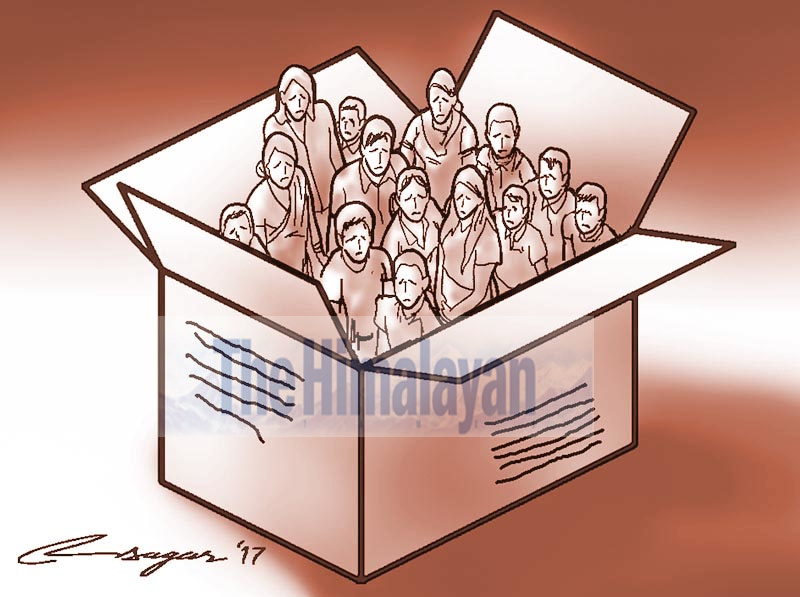Govt unable to control thriving human trafficking
Human trafficking continues in the guise of foreign jobs and studies
Kathmandu, August 21
Government has yet to effectively address exploitation and violence associated with human trafficking. The crime continues to thrive due to lack of sound coordination among non government organisations fighting against trafficking and government’s inability to crackdown trafficking rackets that operate under the guise of foreign employment and abroad studies. According to statistics provided by Nepal Police, it received 305 complaints of human trafficking in fiscal 2017-18 and as many as 174 cases of human trafficking were filed with police until mid-February of 2019. The statistics showed that 200-300 cases of human trafficking were reported to Nepal Police on an annual basis. “As many as 13,678 persons went missing in fiscal 2017-18. Studies suggest that most of the missing persons were subjected to human trafficking, in circumstances others than conflict, militarisation and disasters,” said the National Human Rights Commission in its report, Trafficking in Persons-2019.
Various non government organisations active in anti-trafficking campaign suggest that they sent back home at least 10,000 persons in fiscal 2017-18 from international border points out of suspicion that they were being trafficked. Nepal Police barred 2,104 persons from going abroad during the same period.
“Though Nepal Police received only 174 complaints of human trafficking until mid-April this year, non-government organisations rescued 640 persons, which accounts for more than three folds of complaints on human trafficking registered with the law enforcement agency. Of those people, 266 were rescued from foreign countries,” the report read. The government also rescued more than 300 persons, who were being trafficked to third countries via India.
Cases of human trafficking are often trivialised by linking them to other aspects such as migration for employment. “It is claimed that trafficking victims refuse to come forward with complaints for action against their perpetrators. Lack of effective coordination among non government organisations working against human trafficking and government’s inability to crack down trafficking cases that have been thriving under the cover of foreign employment are the reasons why cases of heinous human trafficking often go unreported,” the report stated.
Previously, Nepali women and girls trafficked by organised crime syndicates used to end up in Indian cities.
Now, the web of trafficking for worst forms of slavery and sexual exploitation has gradually spread across China, Gulf, African and Latin American countries.
It is estimated that around 35,000 persons, including 15,000 women and 5,00 girls were victims of human trafficking in 2018-19, according to the report.






